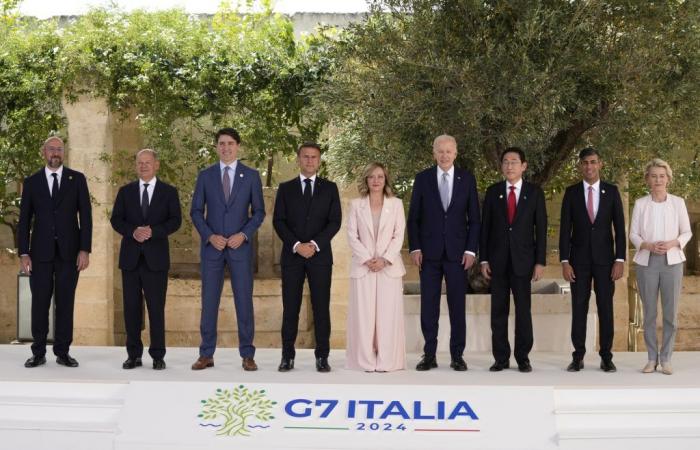
of WWF Italy
The climate was one of the priorities announced by President Meloni for Italian G7, but the leaders’ final communiqué limits itself to confirming the main objectives of COP28 and the Global Framework for Biodiversity, missing the opportunity to accelerate the multilateral path towards COP29 in Baku on climate and COP16 in Cali on biodiversity at the end of the year . And the news coming from Bonn, where a round of climate negotiations has just concluded, confirms that instead of such a push there would have been a great need. A missed opportunity to respond to the serious economic, financial and social impacts generated by an increasingly rapidly changing climate and an increasingly serious loss of biodiversity.
No plan to abandon oil and gas
The G7 reaffirms commitments that are certainly important for the climate and the 1.5°C objective, starting from the “transitioning away” from fossil fuels and the exit from coal by 2035 decided by the Ministerial Environment of Turin, but does not define plans and deadlines for abandoning oil and gas. Indeed, the Italian Presidency continues to make gas the gravitational center of Mattei Plan for Africa, confirming a short-term approach to the challenges linked to relations with the African continent. It is also sad to note how the Italian Presidency has put false and divisive solutions, like that one, on the G7 table nuclear: moreover, the technologies referred to by the Italian public debate and by some countries (not all) in the final communiqué either do not exist (fusion) or are far from being marketed and available and are currently unsafe.
The commitments for the definition of a new quantified collective objective on climate finance and the reference to the financial targets of the Global Framework for Biodiversity are more encouraging. The objective of adopting National Strategies and Action Plans for the Biodiversity before COP16 in Cali.
The Italian government’s shrimp policy
These commitments are certainly relevant and need to be strengthened, starting with their implementation at the level of the individual G7 states. However, there is no shortage of glaring contradictions between the commitments undertaken at a multilateral level by the Meloni Government and the “prawn” policy carried out by the same executive on climate and environment at the internal level. As an example, we can only point out the clear incompatibility of the ban on the installation of ground-mounted photovoltaic systems in all agricultural areas contained in the Agriculture Decree under discussion in the Senate and the commitment made at the G7 to triple global electricity production from renewable sources by 2030. Also on a European level, the Italian Government’s opposition to Nature Restoration Lawwhich is expected to be put to the vote at the Environment Council on Monday 17 June, is in clear contradiction with the strong commitment of the G7 to implement the Global Biodiversity Framework and achieve the objective of conserving and effectively managing at least 30% of the earth’s areas and navies by 2030. One might think that the government wants to project a conciliatory and moderate image with its international partners, but does not want to do its homework.
Chronic slowness on climate and nature
“It seems that on climate and nature we are falling back into the chronic slowness of action that has led us to the very dangerous situation we are in. Nobody is accelerating action, yet the data on temperatures and the multiplication of the impacts of the climate crisis are off the charts and truly frightening – declares Mariagrazia Midulla, Climate and Energy manager of WWF Italy, present in Bari with the C7 civil society delegation at the G7 Media Center –. Scientists tell us that to truly limit global warming to 1.5°C we need to reduce greenhouse gas emissions drastically and quickly, reaching the peak immediately and starting to fall quickly, the opposite of what you are doing. If leaders do not demonstrate the ability to act, the challenge will be lost for all humanity. As if that wasn’t more than enough reason to take action, they will also get lost economic opportunities, which are not all on the same level, as it seemed from the interlocutors sitting around the G7 table yesterday, all businessmen with very specific and in some cases very fossil interests. It is right that Africa is talked about at the G7, but it would have been good to also call on those who know the needs of people, communities and nature to talk about it.”





